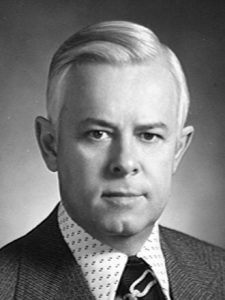William Marvin Petty, M.D., Research Fund will support next step for promising research to improve pancreatic islet cell transplantation success
 JoAnn Joule’s father, William Marvin Petty, M.D., suffered from diabetes for many years. A 1952 graduate of the University of Louisville School of Medicine, Petty served as Jefferson County Coroner from 1962 to 1974 and was a family physician in Fern Creek for 43 years.
JoAnn Joule’s father, William Marvin Petty, M.D., suffered from diabetes for many years. A 1952 graduate of the University of Louisville School of Medicine, Petty served as Jefferson County Coroner from 1962 to 1974 and was a family physician in Fern Creek for 43 years.
Joule’s son lives with type 1 diabetes.
To honor her late father and help improve the lives of those with type 1 diabetes, Joule has given $500,000 to the University of Louisville Foundation to establish the William Marvin Petty, M.D., Research Fund. The fund is designated to support type 1 diabetes research at the UofL School of Medicine.
“I saw the toll diabetes took on my dad, and now my son is faced with the same disease,” Joule said. “I was not happy that medical research has not come up with anything new in the 40 years my son has been suffering. I am putting my assets behind the UofL research team.”
That research team includes Haval Shirwan, Ph.D., and Esma Yolcu, Ph.D., of the UofL Department of Microbiology and Immunology, who are working to develop techniques to prevent and treat type 1 diabetes with particular focus on transplantation of islet cells.
Type 1 diabetes is a chronic autoimmune disease in which the pancreas does not produces enough insulin, a hormone required to convert glucose to energy in the body. There is no cure for type 1 diabetes, and standard treatment involves regular injections of insulin, which is far from keeping blood sugar in balance.
Insulin is produced in the pancreas by a type of cells called islet cells. Individuals with type 1 diabetes have too few or altogether lack the type of islet cells that produce insulin to keep glucose at the proper level. In recent years, physicians have developed a treatment in which they transplant the needed islet cells into a patient. However, the patient’s immune system often rejects the transplanted islet cells over time, attacking and killing them. To keep the transplanted cells alive, patients must take immunosuppression medications, which have a number of undesirable side effects. Continue reading

Photo: Louisville Department of Public Health and Wellness
The Louisville Metro Department of Public Health and Wellness will sponsor a free 16-week class series, PreventT2, to help people prevent or delay the onset of Type 2 diabetes.
Classes begin on Friday, January 19 at 11:30 a.m. and will be held for one hour each Friday at the South Louisville Community Center at 2911 Taylor Boulevard from January 19 until May 4. For more information or to enroll, call (502) 574-6663 or email andrea.doughty@louisvilleky.gov.
PreventT2 is designed to help people with prediabetes make relatively small lifestyle changes that can prevent or delay the onset of full-blown Type 2 diabetes and its devastating health consequences such as heart disease, kidney failure, stroke and blindness. It is estimated that one out three people in the United States has prediabetes and ninety percent of them don’t know they have it.
Those most at risk for prediabetes include those who:
- are age 45 or older
- are overweight
- have a family history of Type 2 diabetes
- get little physical activity
- have had gestational diabetes
- have given birth to a baby who weighed more than 9 pounds.
If you fall into even one of these categories, you should seriously consider taking this course.
PreventT2 participants will work with trained lifestyle coaches on activities proven to help lose weight, eat more nutritiously and become more physically active. PreventT2 groups meet for a year, weekly for the first 6 months and then once or twice a month for the next six months to maintain healthy lifestyle changes.
PreventT2 is part of the CDC’s (Center for Disease Control and Prevention) National Diabetes Prevention Program. Public Health and Wellness has partnered with the Kentuckiana Regional Planning & Development Agency (KIPDA) to offer the course in Louisville.
 Weather
Weather Traffic
Traffic @LouisvilleDispatch
@LouisvilleDispatch @LouisvilleDisp
@LouisvilleDisp Subscribe
Subscribe